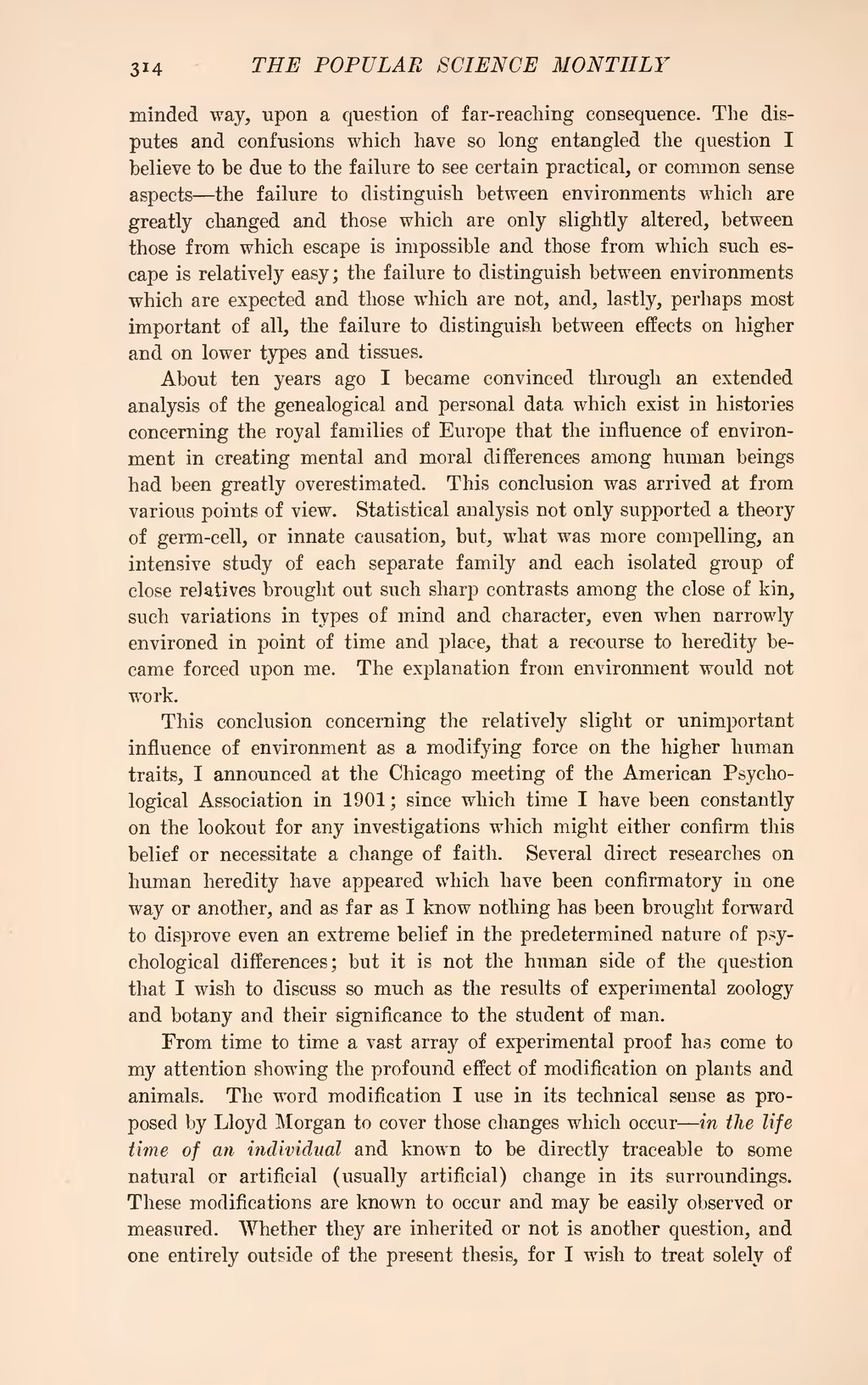minded way, upon a question of far-reaching consequence. The disputes and confusions which have so long entangled the question I believe to be due to the failure to see certain practical, or common sense aspects—the failure to distinguish between environments which are greatly changed and those which are only slightly altered, between those from which escape is impossible and those from which such escape is relatively easy; the failure to distinguish between environments which are expected and those which are not, and, lastly, perhaps most important of all, the failure to distinguish between effects on higher and on lower types and tissues.
About ten years ago I became convinced through an extended analysis of the genealogical and personal data which exist in histories concerning the royal families of Europe that the influence of environment in creating mental and moral differences among human beings had been greatly overestimated. This conclusion was arrived at from various points of view. Statistical analysis not only supported a theory of germ-cell, or innate causation, but, what was more compelling, an intensive study of each separate family and each isolated group of close relatives brought out such sharp contrasts among the close of kin, such variations in types of mind and character, even when narrowly environed in point of time and place, that a recourse to heredity became forced upon me. The explanation from environment would not work.
This conclusion concerning the relatively slight or unimportant influence of environment as a modifying force on the higher human traits, I announced at the Chicago meeting of the American Psychological Association in 1901; since which time I have been constantly on the lookout for any investigations which might either confirm this belief or necessitate a change of faith. Several direct researches on human heredity have appeared which have been confirmatory in one way or another, and as far as I know nothing has been brought forward to disprove even an extreme belief in the predetermined nature of psychological differences; but it is not the human side of the question that I wish to discuss so much as the results of experimental zoology and botany and their significance to the student of man.
From time to time a vast array of experimental proof has come to my attention showing the profound effect of modification on plants and animals. The word modification I use in its technical sense as proposed by Lloyd Morgan to cover those changes which occur—in the life time of an individual and known to be directly traceable to some natural or artificial (usually artificial) change in its surroundings. These modifications are known to occur and may be easily observed or measured. Whether they are inherited or not is another question, and one entirely outside of the present thesis, for I wish to treat solely of

